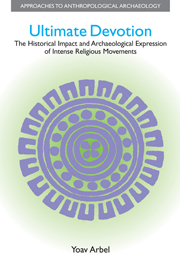 Ultimate Devotion
Ultimate Devotion from Part II
The Jews were certainly not the only people under Roman rule to endure economic and administrative pressure. Like all other peoples under the Caesars they also faced inevitable adaptations due to the dynamic cultural exchanges in the vast imperial domains. Similar situations elsewhere prompted numerous uprisings, and some provinces remained restive for generations (see below). Yet conflicts generally took the form of pulses of violence and destruction, often during the early period of the occupation or near remote provincial frontiers. They seldom evolved into prolonged wars throughout a country that compromised entire legions for several years and reduced the local administrative and economic systems to chaos, as did the First Jewish Revolt. The reasons for this distinction must be uncovered in the peculiar motivation of the rebels in Judea.
Inter-class tensions, increasing economic stress, heavy taxation, ethnic antagonism, and oppressive Roman governors could all be found in first-century Judea. These hardships undoubtedly contributed significantly to the rising tensions that climaxed with the general revolt. Yet, could such factors, however stressful, have provoked an uprising of such scale and nurtured the perseverance of the rebels through years of suffering and against severe losses and increasing certainty of failure? This chapter examines various non-ideological aspects of the political, social, and material stress and the potential influence of each in the decision and determination of Judean Jews to fight Rome.
To save this book to your Kindle, first ensure [email protected] is added to your Approved Personal Document E-mail List under your Personal Document Settings on the Manage Your Content and Devices page of your Amazon account. Then enter the ‘name’ part of your Kindle email address below. Find out more about saving to your Kindle.
Note you can select to save to either the @free.kindle.com or @kindle.com variations. ‘@free.kindle.com’ emails are free but can only be saved to your device when it is connected to wi-fi. ‘@kindle.com’ emails can be delivered even when you are not connected to wi-fi, but note that service fees apply.
Find out more about the Kindle Personal Document Service.
To save content items to your account, please confirm that you agree to abide by our usage policies. If this is the first time you use this feature, you will be asked to authorise Cambridge Core to connect with your account. Find out more about saving content to Dropbox.
To save content items to your account, please confirm that you agree to abide by our usage policies. If this is the first time you use this feature, you will be asked to authorise Cambridge Core to connect with your account. Find out more about saving content to Google Drive.